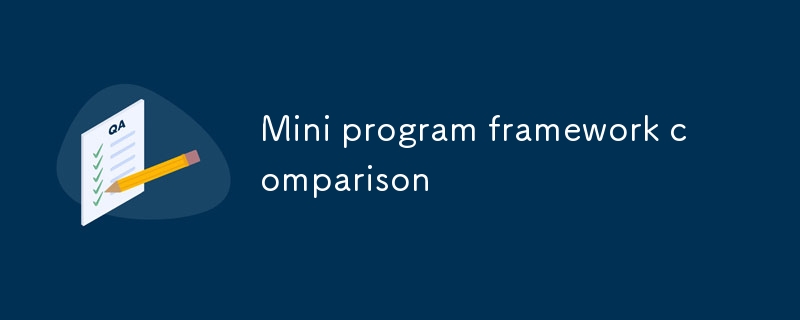
This article provides a comparison of essential features for selecting mini-program frameworks. It focuses on cross-platform compatibility, user interface customization, development tools, community support, performance, security, and potential trade

Mini Program Framework Comparison
Essential Features for Mini Program Framework Selection
When selecting a mini-program framework, several key features are crucial to consider:
Cross-Platform Compatibility of Mini-Program Frameworks
Cross-platform compatibility refers to the framework's ability to run consistently across different platforms and devices. The performance of mini-program frameworks in this aspect varies:
Trade-Offs in Mini-Program Framework Evaluation
Choosing a mini-program framework involves considering potential trade-offs:
The above is the detailed content of Mini program framework comparison. For more information, please follow other related articles on the PHP Chinese website!
 Velocity syntax introduction
Velocity syntax introduction
 letter-spacing
letter-spacing
 Introduction to Java special effects implementation methods
Introduction to Java special effects implementation methods
 What are the disk cleanup commands?
What are the disk cleanup commands?
 The main reason why computers use binary
The main reason why computers use binary
 u shield driver
u shield driver
 Detailed explanation of nginx configuration
Detailed explanation of nginx configuration
 How to cut long pictures on Huawei mobile phones
How to cut long pictures on Huawei mobile phones
 How to calculate the refund handling fee for Railway 12306
How to calculate the refund handling fee for Railway 12306




